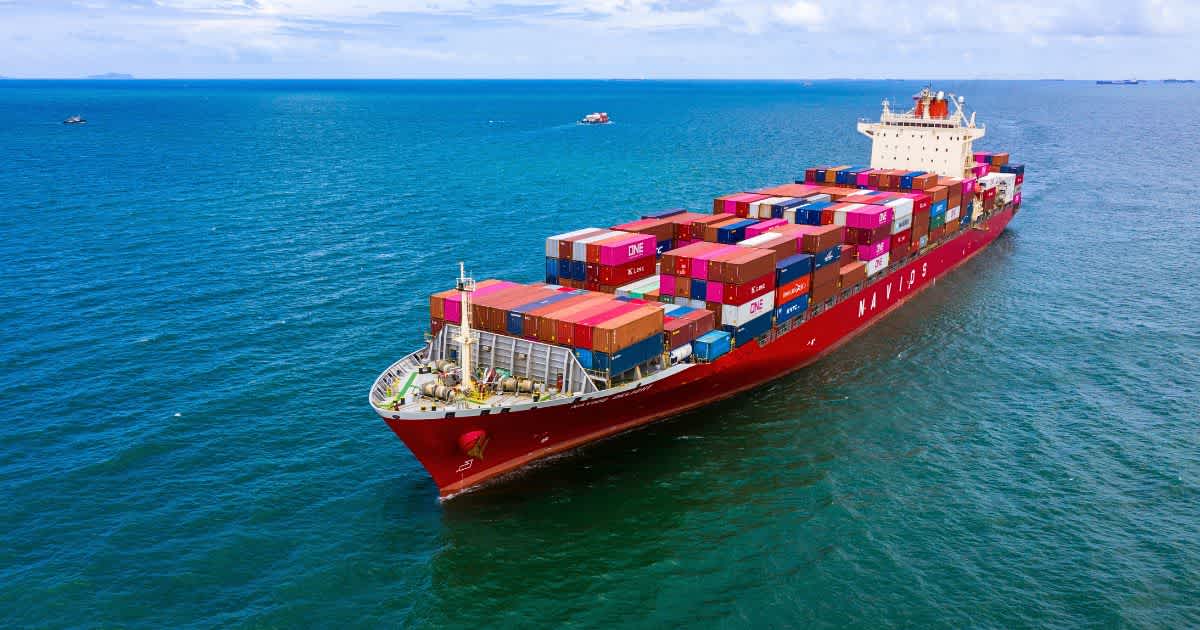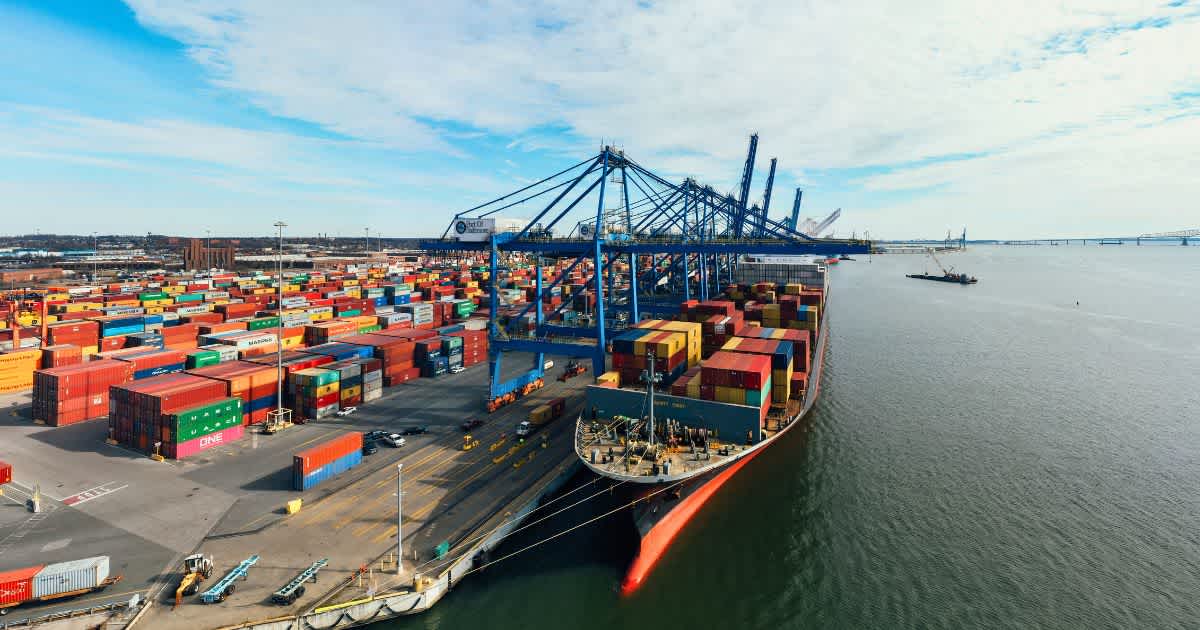Table of Contents
- Escalating tariff spiral exacerbates conflicts in global trade
- Planning risk customs policy: when clarity becomes an exception
- 3 new trade realities due to the USA tariffs
- How companies are realigning their supply chain
- 5 tips for a resilient supply chains
- Remaining capable of action - despite the trade conflict
Global trade: Impact of USA customs duties
Reading Time: 5 min.

The latest developments in US customs policy under President Donald Trump have far-reaching consequences for international trade. We show how companies can remain capable of acting despite the looming trade conflict.
Escalating tariff spiral exacerbates conflicts in global trade
On April 2, 2025, known as “Liberation Day”, President Trump announced far-reaching changes to US trade policy. Since then, the US tariffs have caused far-reaching distortions in international trade. The focus is on a universal basic tariff of 10% on all imports into the USA. However, certain countries are subject to significantly higher rates, which were introduced specifically in response to existing trade conflicts.
China is particularly affected: the US government has increased tariffs on Chinese imports to up to 145%. This measure is seen as a direct response to China's previously imposed counter-tariffs of 34% on US products. A recent White House factsheet even mentions possible tariffs of 245% (as of April 17).
European companies are also affected: An additional 20 percent tariff has been introduced for goods from the EU. Canada and Mexico must also expect a 25 percent surcharge on car imports and vehicle parts.
Planning risk customs policy: when clarity becomes an exception
This makes it clear that basically nothing is clear. Or to put it another way: what applies today in terms of customs duties could be water under the bridge tomorrow. Although President Trump has postponed some of the announced punitive tariffs by 90 days, it is precisely this time-limited postponement that is adding to the uncertainty.
The affected companies simply do not know if and when the tariffs will actually take effect - and if so, to what extent exactly. It is this lack of predictability that poses the greatest challenge alongside the actual costs. As a result, investments are being held back, supply chains are being adjusted as a precaution and trust in previously stable trade relationships is dwindling.
3 new trade realities due to the USA tariffs
1. changes in global trade flows
The new tariffs have already led to a redirection of trade flows. The current development of global trade shows a clear shift towards Asia. Many companies are looking for alternative markets and suppliers to avoid the additional costs, which is causing a reorganization of global trade routes and repositioning different regions in terms of their competitiveness. European companies are increasingly considering China as a reliable trading partner.
2. increased container prices and transportation costs
Uncertainty and the need to use alternative routes have increased container prices and transportation costs. Bottlenecks in certain ports and the rerouting of cargo ships are contributing to this development. In addition, logistics service providers are also increasingly passing on their higher costs to their customers, which has a direct impact on end prices.
3. sharp reactions from other countries
In response to the US tariffs, China has introduced its own counter-tariffs and imposed export restrictions on certain raw materials. The European Union is also planning countermeasures, including tariffs on US products worth 21 billion euros. Many countries are currently reassessing their trade strategies with the aim of reducing dependencies and making their own supply chains more resilient.
How companies are realigning their supply chain
The realignment of supply chains is currently one of the most important levers for internationally sourcing companies. In view of increasing trade barriers and fluctuating framework conditions, it is important to reduce dependencies in a targeted manner. Those who develop alternative sources of supply in duty-free or duty-reduced regions can not only reduce costs, but also strengthen security of supply in the long term.
Trade agreements offer strategic advantages that many companies have so far failed to take advantage of. Free trade zones and bilateral agreements often enable duty-free or facilitated trade in goods - provided the conditions are met correctly. Those who systematically integrate these options into their procurement strategy not only create a financial buffer, but also more flexibility in international competition.
Digital technologies create transparency and speed, which can make the difference between success and standstill. Platform solutions, automated processes and data-based analyses make it possible to identify risks at an early stage and react more quickly to changes. This makes the entire supply chain not only more efficient, but also more resilient.
5 tips for a resilient supply chains
1. analysis of the current supply chain
Systematically check your existing supply chains for risks and dependencies: Where are there bottlenecks or one-sided connections to certain markets? Determine which products or raw materials are particularly susceptible to customs duties or could be affected by new trade restrictions. This analysis forms the basis for introducing targeted measures to minimize risks.
2. diversification of supply sources
Rely on a broad supplier network. Flexibility is a key competence in international trade. Alternative sources of supply in different regions help you to become less dependent on individual markets and to react more flexibly to new framework conditions. Duty-free or duty-reduced economic areas are particularly attractive procurement options. This not only secures your ability to deliver, but also creates better negotiating leeway.
3. use of trade agreements
Get an overview of existing free trade agreements and check to what extent your company can benefit from them. Numerous agreements make it possible to import certain goods duty-free or at reduced rates, provided that the corresponding origin and verification requirements are met. Professional customs and trade consulting can provide support and help you to consistently exploit potential savings.
4. investment in technology
Use digital solutions to make your logistics and procurement processes more efficient and resilient. Intelligent platforms for supply chain management, automated customs clearance and data-based risk analyses enable you to react quickly to market changes. Modern tracking and monitoring tools also create transparency and help to identify critical developments at an early stage.
5. working with procurement experts
Actively seek an exchange with experienced partners such as Line Up, who can support you in the strategic alignment of your supply chains. External experts have the necessary know-how on international markets, customs law and trade agreements. They help you to develop tailor-made solutions to future-proof your company and make the right decisions in the complex environment of international trade.
Remaining capable of action - despite the trade conflict
The current US customs policy presents companies with complex challenges. However, those who react now can not only mitigate risks, but also secure competitive advantages in a targeted manner. Core strategies such as the diversification of supply sources, the targeted use of trade agreements or the use of intelligent technologies make supply chains more crisis-proof and adaptable. And in an environment that changes almost daily, strategic foresight and operational flexibility are more important than ever.
Together with experienced partners, these challenges can not only be mastered, but transformed into real opportunities.
Line Up supports you in this! Simply get in touch using the contact form.
Newsletter Registration
Sign up now for our free Line Up newsletter and stay up to date.





